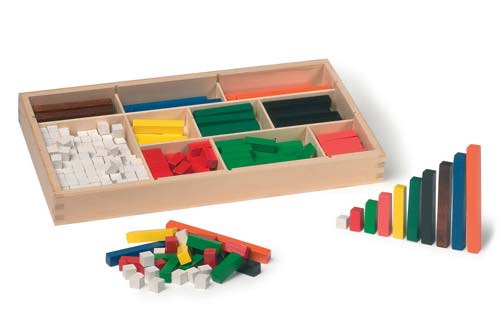What is your type of specialized thinking?
jojobean
Veteran

Joined: 12 Aug 2009
Age: 47
Gender: Female
Posts: 3,341
Location: In Georgia sipping a virgin pina' colada while the rest of the world is drunk
I think in pictures with words narrating them, sometimes, I think more in pictures, other times I think more in words. I have these waves where at sometimes I am more autistic than others, if that makes any sense at all. When I am more autistic, there are no words, just pictures and my skin is more hypersensitive than usual, sounds are more bothersome, and colors are brighter. It is in these moments that I get lost in the beauty of visual objects and bathe in an almost spiritual experience when I see something that is visually interesting. While I am in this state, there are no words, no pictures, no thoughts at all, just surrounded by unexplainable beauty upon looking at something facinating. I get lost in my world at this point, but what a beautiful world it is. It always worries my mom when I get like this because she has a harder time communicating with me as I dont understand much of the words comming out of her mouth. I hear mostly just sounds but no meaning. The good thing is that this only last a day or two and then I am back to my higher functioning self. It seems like I switch from lower functioning to higher functioning like high tide and low tide. When I am higher functioning, my thoughts are mostly words with some images that are broken and flashing from scene to scene as I am thinking. I read in the merrik manual that my episodes of hearing what people say but not connecting meaning to them, could be a type of seizure, as I have a documented seizure disorder, this is possible
_________________
All art is a kind of confession, more or less oblique. All artists, if they are to survive, are forced, at last, to tell the whole story; to vomit the anguish up.
-James Baldwin
Temple Grandin has a problem with under-recognizing how many ways of thinking there are. There's no "none of the above" option.
Let me add that option
Update: Nevermind, looks like I can't add it, sorry
_________________
That's the way things come clear. All of a sudden. And then you realize how obvious they've been all along. ~Madeleine L'Engle
Yes but I think by "specialized" she means the way you think most the time, or more often.
_________________
That's the way things come clear. All of a sudden. And then you realize how obvious they've been all along. ~Madeleine L'Engle
http://www.neurolearning.com/spatial.htm
People frequently confuse spatial thinking with visual. True spatial thinking is not visual thinking. For example: Draw me a picture of independence. Show me a picture of enlightenment. Tell me about what time looks like. Independence, enlightenment and time are ideas - ideas are an explanation of the relationship between things, either a placeholder for an explanation of how things work, or a summary of explanations around what things mean.
Since spatial thinking has to do with relationships, it comes from our lizard-brain ability to imagine a path between locations in our heads. This evolved into the primate brain being able to predict who was friends with who, or how many fruits person X will give you for a dead rat vs. person Y's offer. In modern humans, spatial thinking is our ability to dream, create, investigate and predict. I can use it to tell a story (verbal), draw a picture (visual), imagine a pattern (music), or predict economics (math). Spatial thinking is the core of human intuition.
My primary thinking is spatial.
I've been reading about spatial thinking for a few hours, as you said it is often associated with visual, some mention visual/spatial and auditory/sequential thinking, but it seems spatial thinking is assumed to be a part of our lives whether we are conscious of it or not, so I guess this is why Temple Grandin didn't mention it as a category. I think I understand what you mean tho, you are conscious of, and especially good at (or gifted etc), spatial thinking.
quote is from this document http://www.informaworld.com/smpp/sectio ... =713240928
_________________
That's the way things come clear. All of a sudden. And then you realize how obvious they've been all along. ~Madeleine L'Engle
Temple Grandin has a problem with under-recognizing how many ways of thinking there are. There's no "none of the above" option.
^This.
I'm strongest in the musical domain, and I always have music in my head, but my primary mode of thinking DOES NOT CORRESPOND to any of the 5 senses.
_________________
Music Theory 101: Cadences.
Authentic cadence: V-I
Plagal cadence: IV-I
Deceptive cadence: V- ANYTHING BUT I ! !! !
Beethoven cadence: V-I-V-I-V-V-V-I-I-I-I-I-I-I-I-I-I-I
-I-I-I-I-I-I-I-I! I! I! I I I
Me too. I'm completely incapable of any visual thinking. I only know two other people in real life (off the internet) that can't do any visual thinking. One has ADHD (visual-spatial deficits are fairly common in people with ADHD) and the other is likely an undiagnosed Aspie.
Verbal. I've been having a continuous "conversation" with myself as long as I can remember - not literally back and forth and not hearing voices but analysing, planning and so forth.
I've never been good at drawing or estimating distances or the sizes of things. I like most kinds of music but not to an unusual extent. I was quick with basic arithmetic as a kid but I never understood the more advanced stuff in high school.
Me too. I'm completely incapable of any visual thinking. I only know two other people in real life (off the internet) that can't do any visual thinking. One has ADHD (visual-spatial deficits are fairly common in people with ADHD) and the other is likely an undiagnosed Aspie.
Me too! I don't think in pictures at all!
I am primarily a verbal thinker. However, I disagree with Temple Grandin that all people with autism are detail-orientated, I am not detailed orientated at all! For example, I don't even know the exact time my bus comes, all I know is that I have to leave at about 8:05 to it!
Last edited by ocdgirl123 on 03 Dec 2010, 12:30 am, edited 1 time in total.
I guess I'd have to pick visual. I realized years ago that other people did math differently than I did, because they thought in numbers, but I have to visualize the numbers. Math homework took me forever to do, even if I did get A's. And I have a very hard time translating my thoughts into spoken words. Writing is fine, but then, that is visual.
I do sing all the time though. XD
You would do well in the math class I am in! We use this book that uses a lot of pictures and really gets you to visualize the numbers. I find it impossible to work out of, but most people in that class like it.
I do sing all the time though. XD
You reminded me how much I liked those in 1st/2nd grade or maybe it was kindergarten, I'm not sure

_________________
That's the way things come clear. All of a sudden. And then you realize how obvious they've been all along. ~Madeleine L'Engle
Mix of 2, more visual and verbal.
When I'm learning something more hands on I need to see it being done, I can't simply be told the directions or I'll screw up and/or forget everything. Fixing, constructing, and even running errands I'm more visual.
When it comes to facts, stories, and history, I learn verbally. When people tell me stories about something and repeat them for others, I can correct their own stories to match exactly what they told me prior.
With math and music, I love numbers and I realize I'm better with them than others, but I'm not a natural. Music I can listen to and find many different interpretations to the songs/lyrics every time. I can think of movie ideas from a sole song, which probably sounds weird.
I do sing all the time though. XD
You reminded me how much I liked those in 1st/2nd grade or maybe it was kindergarten, I'm not sure

I had to look up what those were. I've never seen them before. They would have made things so much easier!
I would say that I am about 80% math and music, and 20% verbal logic.
I only include the verbal because I love teaching myself foreign languages, and I often find lists useful.
I listen to music all the time, and am always getting songs or rhythms stuck in my head. I also learned to play keyboard, flute, and recorder very easily. And I have always been good at math, doing calculations in my head, noticing patterns, etc...
But I am not a visual thinker AT ALL. lol.
| Similar Topics | |
|---|---|
| type o negative fans |
19 Dec 2024, 2:11 pm |
| In a 1st, Scientists Reversed A Person's Type 1 Diabetes |
13 Nov 2024, 6:45 pm |
| Biden thinking about pardoning possible Trump targets |
06 Dec 2024, 5:43 pm |









